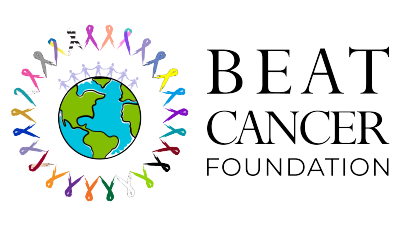
Artemisinin

Artemisia Annua, Artemisinin & the 2015 Nobel Prize in Medicine
Unveiling a Powerful Cancer Fighting Plant
Artemisinin is a natural extract derived from Artemisia annua, or sweet wormwood, a plant traditionally used as a remedy for malaria. This life-saving compound has secured millions of recoveries, earning its discoverer, Mrs. Tu Youyou, the 2015 Nobel Prize in Physiology or Medicine. Yet, its potential extends far beyond treating malaria; it has demonstrated significant efficacy against cancer, particularly when bound to iron.
Artemisinin's promising anti-cancer properties have been highlighted in numerous studies. Researchers, including Professor Henry Lai and Dr. Narendra P. Singh from the University of Washington, established as early as 2004 that artemisinin could induce cancer cell death. Subsequent studies have affirmed these findings, showing that artemisinin can destroy up to 12,000 cancer cells for each healthy cell, posing no toxicity to healthy cells.
The key to artemisinin's potency lies in its combination with iron. In a 2008 study, Lai and his team demonstrated that coupling artemisinin with iron (transferrin) significantly reduced breast cancer tumor growth. This "tagged" compound was 34,000 times more potent in killing cancer cells, earning it the moniker "Trojan horse" due to its ability to infiltrate cancer cells under the guise of a harmless protein.
Artemisinin's anti-cancer effects aren't limited to breast cancer. It's shown to induce cell death across various cancer cell lines, demonstrating anti-angiogenic, anti-inflammatory, anti-metastasis, and growth inhibition effects. It's especially potent when paired with 5-aminolevulinic acid (5-ALA), even against drug-resistant glioblastoma.
However, certain substances can hinder artemisinin's cancer-fighting capabilities, such as N acetyl cysteine (NAC), bafilomycin, and deferoxamine mesylate. On the other hand, compounds like resveratrol, turmeric, allicin, berberine, vitamin D, melatonin, butyrate, and stilbines can enhance artemisinin's activity. Furthermore, artemisinin can augment the effectiveness of chemotherapy drugs.
Artemisinin has proven to be a formidable weapon in the battle against cancer. Its ability to selectively target cancer cells, causing minimal damage to healthy cells, has made it a promising alternative cancer therapy. Artemisinin's application extends to aggressive cancers like brain, colorectal, pancreatic, and TNBC. The research by Dr. Henry Lai and his team highlights artemisinin's potential: alone, it can kill cancer cells, but when bound to iron, it becomes 34,000 times more lethal to cancer cells.
Ultimately, the potential of artemisinin as a cancer treatment is immense, from prostate cancer to renal cell carcinoma (RCC), pancreatic cancer, gastric cancer, brain cancer, liver cancer, sarcoma, colorectal cancer, endometrial cancer, oral squamous cell carcinoma, melanoma, and more. Its accessibility and affordability make it a practical solution, with a broad range of applications.
Artemisinin's cancer-fighting prowess operates on multiple fronts. It can halt cancer cell progression, activate natural killer cells in the immune system, and work as a 'chemosensitiser' for breast cancer cells. Its beneficial effects on the immune system were confirmed in 2017 research showing that it causes increased cell death in ovarian cancer.
Artemisinin's unique mechanism of action involves its reaction with ferrous iron to form free radicals. These free radicals is thus a promising natural compound in the fight against cancer. It not only selectively targets and destroys cancer cells, but also boosts the immune system, offering a two-fold approach to cancer management.
Artemisinin's ability to target cancer cells is largely due to their high iron content. The compound triggers the release of free radicals when it encounters iron, and these free radicals then destroy the cancer cells. This approach has the advantage of minimizing harm to healthy cells, which contain far less iron than cancer cells.
Research continues to uncover more about this powerful compound's anti-cancer properties. Dr. Singh's studies have shown that combining artemisinin with increased iron intake can enhance its effectiveness, leading to the destruction of 98% of breast cancer cells within just 16 hours. Similar results have been seen in other types of cancer, including lymphoblastoid leukemia and larynx cancer.
During the past years, Artemisinin has also been identified as a substance with a strong anti-cancer potential in various cancer cells such as
- prostate cancer http://www.ncbi.nlm.nih.gov/pubmed/26655404
- renal cell carcinoma (RCC) http://www.ncbi.nlm.nih.gov/pubmed/26426994
- pancreatic cancer http://www.ncbi.nlm.nih.gov/pubmed/19690861
- gastric cancer http://www.ncbi.nlm.nih.gov/pubmed/23958790
- brain cancer http://www.ncbi.nlm.nih.gov/pubmed/25211298
- liver cancer
- http://www.ncbi.nlm.nih.gov/pubmed/12776323
- http://www.ncbi.nlm.nih.gov/pubmed/24987823
- sarcoma http://www.ncbi.nlm.nih.gov/pubmed/24859473
- colorectal cancer: http://www.ncbi.nlm.nih.gov/pubmed/26137537
- endometrial cancer: http://www.ncbi.nlm.nih.gov/pubmed/24296733
- oral squamous cell carcinoma http://ar.iiarjournals.org/content/24/4/2153.full.pdf
- melanoma http://www.ncbi.nlm.nih.gov/pubmed/16273263
- and more http://www.hindawi.com/journals/bmri/2012/247597/tab2/
While artemisinin is a potent tool in the fight against cancer, it is not a standalone solution. It is most effective when used as part of a broader treatment plan that includes a healthy diet, exercise, and other supplements. Vitamin C, in particular, can boost the effectiveness of artemisinin by increasing the conversion of ferric iron to ferrous iron in cancer cells. This increases artemisinin's destructive power, leading to even greater cancer cell death.
Moreover, it is also crucial to mention that artemisinin not only works in harmony with the body's own defenses, but it also has been shown to enhance the action of chemotherapy drugs, adding yet another layer of potency to conventional treatments.
In conclusion, artemisinin has demonstrated immense potential in the battle against cancer. Its ability to selectively target and destroy cancer cells, while leaving healthy cells largely unaffected, makes it a promising addition to current and future cancer treatment strategies. With ongoing research, we can hope to uncover even more about this powerful compound and how it can be best used to give patients the best chance of recovery.
References:
1. https://www.embopress.org/doi/full/10.15252/emmm.202216959
2. https://pubmed.ncbi.nlm.nih.gov/25862840/
3. https://pubmed.ncbi.nlm.nih.gov/34681200/
4. https://pubmed.ncbi.nlm.nih.gov/15330172/
6. https://pubmed.ncbi.nlm.nih.gov/19846912/
7. https://pubmed.ncbi.nlm.nih.gov/22935909/
“Knowing all your treatment options could be life-saving!”
Location
Sheridan, WyomingTogether, we can beat cancer
Thank you for your interest in the Beat Cancer Foundation. We are here to support you every step of the way in your cancer treatment journey. Please fill out the form below, and our team will be in touch with you shortly. Together, we can beat cancer. (307) 291-0991

